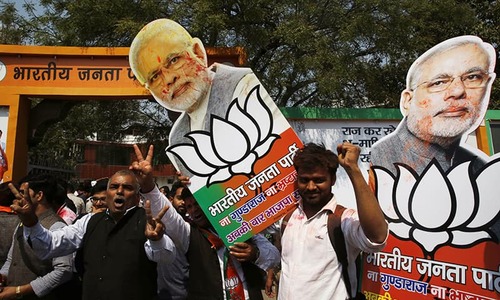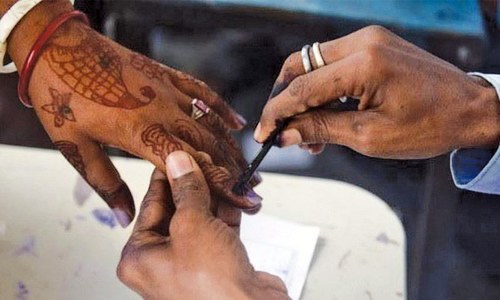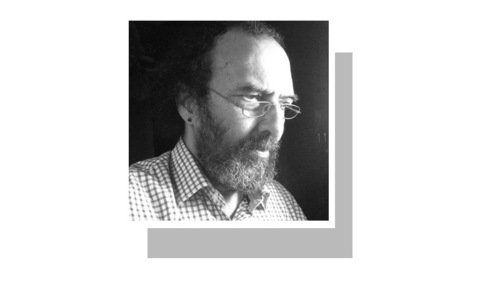Modi's party wins India's biggest state to strengthen grip on power
Narendra Modi's party won a landslide in India's most populous state on Saturday in a massive vote of confidence for the prime minister halfway into his first term.
Modi's Hindu nationalist Bharatiya Janata Party claimed victory in four states including Uttar Pradesh in the north, which is home to 220 million people and seen as a key indicator of national politics.
The BJP was leading in 310 seats out of the total 403 constituencies in Uttar Pradesh, way above the 202 seats it needs to form a government on its own, the Election Commission of India website showed.
The BJP had been expected to perform well in UP, but few experts had predicted the apparent scale of the victory in elections viewed as a test of Modi's popularity after a controversial ban on high-value banknotes.
Party leader Amit Shah said the BJP would also form governments in the smaller states of Goa, Uttarakhand and Manipur, calling it a “historic mandate” for the party.
“These results will set Indian politics in a new direction,” he said at a press conference at the party's New Delhi headquarters.
“Caste, dynastic politics and polarisation have lost and the people have accepted the politics of performance.”
In a tweet, Modi said he was overjoyed by the “unprecedented support from all sections of society” and congratulated party workers.
“Huge support from the youth is gladdening,” he said.
The result will ultimately strengthen the BJP's hand in parliament's upper house, where the lack of a majority has hampered its reform agenda.
Modi's dominance has been largely unchallenged since he won the first overall majority in three decades in the 2014 general election on a pledge to wipe out corruption and kickstart the economy.
He already looks well-placed for re-election in 2019 over the centre-left Congress Party, which the BJP ousted from power in 2014.
Congress won in just one state, Punjab, where it fended off a challenge from the fledgling Aam Aadmi Party.
The AAP is an anti-corruption party led by Delhi's Chief Minister Arvind Kejriwal which some surveys had tipped to win the northern state.
In UP, Congress ran in an alliance with the locally ruling Samajwadi Party, but they were trailing in a distant second according to the incomplete vote count.
The BJP was also leading the count in the smaller states of Uttarakhand, Goa and Manipur, according to the election commission, which will announce the final results later on Saturday.
'Rapid development'
Celebrations broke out at BJP's headquarters in state capital Lucknow where euphoric supporters danced to drum beats and distributed sweets.
“The state should now witness rapid development. Corruption and nepotism in governance would also come down,” one supporter, Viti Kumar, a housewife, told AFP.
The major cash shortages that followed November's shock ban on high denomination bank notes appear to have done little damage to his standing.

Upbeat scenes also unfolded at the BJP's national headquarters in Delhi where men and women waved giant flags bearing the party's lotus symbol and chanted “Modi, Modi”.
Uttar Pradesh has been ruled since 2012 by the socialist Samajwadi Party whose leader and current Chief Minister Akhilesh Yadav went into an alliance for the election with Congress.
Yadav tried to tap into the pain from Modi's cash ban, campaigning alongside Congress' frontman Rahul Gandhi.
“The Samajwadi Party wholeheartedly accepts the verdict of the people of Uttar Pradesh. I congratulate BJP for winning the vote of the people,” Samajwadi Party spokesman Ghanshyam Tiwari told reporters in Lucknow.
The BJP fared poorly in the last UP state elections, winning only 47 out of 403 assembly seats, but it clinched 73 out of 80 parliamentary constituencies in 2014 with Modi standing in the holy city of Varanasi.
The BJP's win in Uttar Pradesh will have significant implications for the make-up of the Rajya Sabha -- the upper house of parliament.
The Rajya Sabha is based on parties' strength in the state assemblies, with the biggest states supplying the largest number of MPs.













































